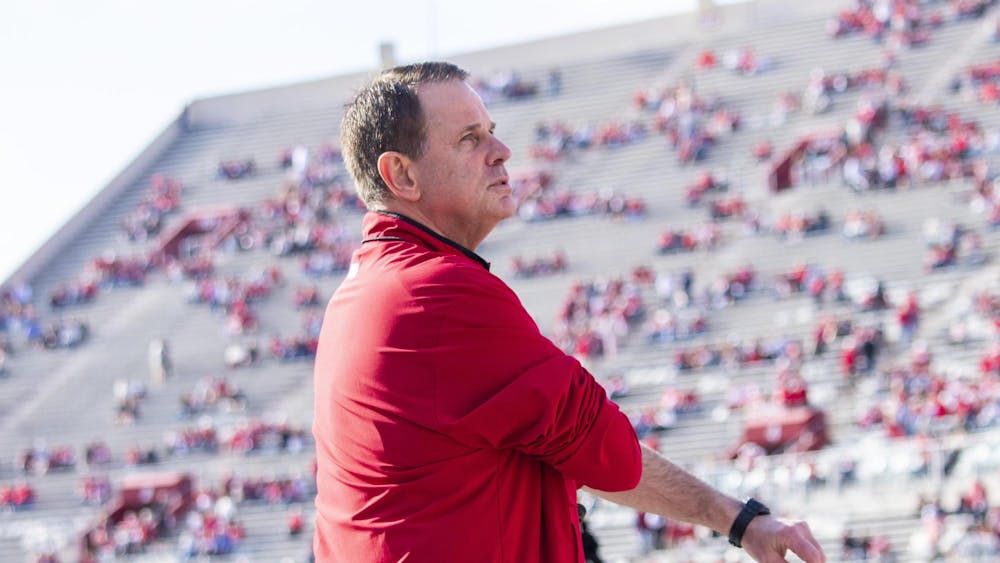TURIN, Italy -- Across 16 topsy-turvy days in Turin, the U.S. Olympic team teetered somewhere between torment and triumph, each step up to the medal stand tempered by one step back somewhere else.\nThere were unlikely Alpine golds from skiers Julia Mancuso and Ted Ligety. And the disaster in the mountains that was Bode Miller and his tattered reputation.\nSpeedskater Joey Cheek set a standard for Olympic class, winning two medals and donating his $40,000 reward from the U.S. Olympic Committee to a charity for children trapped in war zones. Teammates Chad Hedrick and Shani Davis typified something less than class, fussing and fighting like second-graders in a sandbox.\nA kid dubbed "The Flying Tomato," Shaun White, sailed into the sky above Bardonecchia to claim a gold medal in the snowboard halfpipe. Another snowboarder, Lindsey Jacobellis, hot-dogged her way out of a gold medal in a still-stunning turn of events that typified a growing Generation X Games gap among the Americans.\nBy the time the Turin two-step was done, the final medal total left the U.S. somewhere between total success and perceived failure. The collection of 25 medals -- 9 gold, 9 silver, 7 bronze -- was far less than the record 34 of 2002, but nearly double the previous high of 13 from 1994 and 1998.\nDespite the medals haul, the Olympics proved to be not much of a ratings draw for NBC, which was consistently beaten by shows such as "American Idol" and "Grey's Anatomy." The network said it wasn't a disaster, though it was on the low end of their ratings expectations.\nAnd cynics might observe the Olympics have added 16 new medal sports since the '98 Nagano Games, several in U.S.-friendly events.\nIt was the most medals ever won by the Americans in a foreign Winter Olympics, and left the U.S. second only to Germany's 29 medals. The head of the USOC was quick to spin it as success, while acknowledging others might see it differently.\n"This has been an incredible performance," Jim Scherr said. "It's probably a little bit our fault that this team has been viewed as a little less than that because of the high expectations we all had coming into these games."\nNo one came into the games with higher expectations than skier Miller and speedskater Hedrick, each entered in five events. Miller won nothing; Hedrick epitomized the yin/yang of the Americans in collecting a gold, silver and bronze between yapping with Davis.\nAlmost lost in the backbiting was Davis' Jackie Robinson moment, a gold medal in the 1,000 meters that made him the first black athlete ever to win an individual Olympic gold medal.\nThe U.S. medal haul came from their domination in men's long-track speedskating and snowboarding, with seven medals apiece. Short track skater Apolo Anton Ohno added a gold and two bronzes, one of the latter in a relay event.\nThe news wasn't as good elsewhere in the Piedmont region.\nHockey was a dual disappointment: The professionals from the NHL looked like amateurs, winning a single game. The women -- gold medal finalists in 1998 and 2002 -- settled for a bronze. The women speedskaters were shut out. Michele Kwan, plagued by a groin injury, never reached the ice.\nThe Alpine team, the self-proclaimed "Best in the World," boasted of a potential eight-medal haul -- and won two. "This just in," announced David Letterman on his "Late Show." "Bode Miller has tested negative for medals."\nThe games' most enduring moment was also its most bizarre. Jacobellis, on the next-to-last jump of the first women's Olympic snowboardcross, grabbed her board in an unnecessary bit of showboating -- and then crashed, blowing her gold medal. Her silver seemed almost insignificant.\nThe stunt was endlessly replayed, with Jacobellis alternately cheered (by the snowboard community) and chastised (by everyone over 40).\nThe disagreement demonstrated a generation gap involving the age of the sports, not the athletes. The new wave of U.S. Olympians on snowboards or skis wanted to put on a show ... and maybe get a medal, too.\nTake aerial skier Jeret "Speedy" Peterson. A seventh-place finish in the aerials couldn't wipe the smile off his face. "I came here to do the Hurricane," he said, referring to the difficult maneuver, "and I did the Hurricane."\nNever mind that he botched it. Or that an easier stunt might have won a medal.\nThe mindset wasn't universal. Tanith Belbin, a Canadian who won American citizenship on Dec. 31, came to Turin and won a surprising silver medal with ice dancing partner Ben Agosto on Feb. 21.\nThere were other stunners, too: Shauna Rohbock, cut from a medal-winning sled before the 2002 games, coming back to win a silver with teammate Valerie Fleming in the bobsled. Three-time Olympian Rosey Fletcher, a self-described "dark horse," grabbing a bronze in the snowboard parallel giant slalom.\nThe U.S. men's curling team swept through the competition to grab a bronze -- the first American Olympic medal in the sport -- when skip Pete Fenson delivered a clutch shot on the last stone of the match.
U.S. dances away with 25 medals
Skier Bode Miller comes away empty-handed
Get stories like this in your inbox
Subscribe





